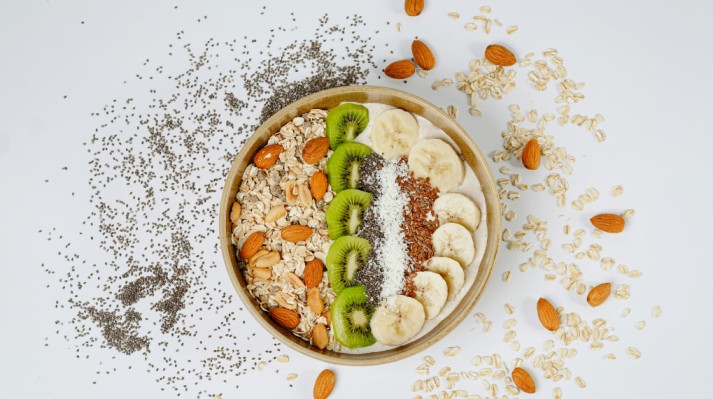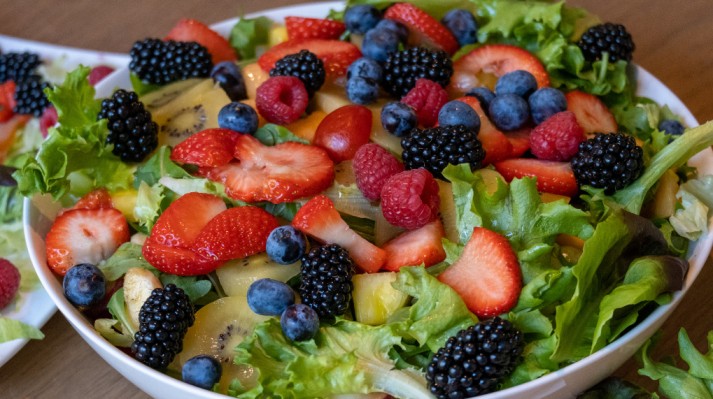Examinations can have stressful consequences for children, leading to bad eating habits, poor focus, and increased anxiety. The dietary habits of a child during these times will affect not only his memory but also his focus, energy, and performance levels. Balanced nutrition fuels the body and greatly benefits the brain with levels of relaxation. In this blog, we shall be sharing science-based nutrition tips to help parents keep their children calm and focused during the examinations.
Start the Day with a Heavy & Healthy Breakfast
Breakfast is the food for the brain. After a long night’s fast, the brain needs some food in the morning to start the rest of it. This is positively helpful for the brain to work at its best during the day. Not eating breakfast or eating too many sugary cereals leads to complete energy crashes mid-morning.
Research:
If one goes over the publications from the Frontiers in Human Neuroscience Journal, then one is surely going to find that children who eat a balanced diet, including breakfast, have much better memory recall, a longer attention span, and better cognitive performance than children who skip breakfast.
Breakfasts worth eating:
- Whole grain paratha with paneer or egg
- Millet upma with nuts
- Vegetable poha with seeds
- Oats porridge with fruits and peanut butter.
Frequent Small Meals to Maintain Energy Levels
Long study hours drag down glucose levels, which can affect concentration and mood. Eating small but extremely nutritious meals every 3 to 4 hours helps stabilize blood sugar and energy.
Best snack options:
- Sprouts chaat
- Makhana and nuts
- Greek yogurt with berries
- Boiled eggs with avocado
Prioritize Protein Intake
Proteins are needed to make neurotransmitters, which stabilize memory, focus, and emotions.
Impairment in cognitive performance and learning in children is inconsistent with adequate protein intake, as suggested by the research published in the American Journal of Clinical Nutrition.
Sources to include:
- Eggs, chicken, fish
- Paneer, tofu, lentils
- Greek yogurt
- Seeds & nuts
Hydration – The Brain Needs Water
Dehydration of even a mild degree (1-2%) tends to negatively influence focus, memory, and mood.
Nutrients Journal proves that good hydration positively influences memory and attention.
Best options:
- Water infused with lemon/mint
- Coconut water
- Homemade buttermilk
- Fresh fruit juices (without added sugar)
Say No to Caffeine, Sugar & Processed Foods
Caffeine and refined sugar spikes energy, followed by a crash that may affect focus and mood. Processed foods are poor in nutrients, high in unhealthy fats and preservatives, and contribute to stress.
A study in the Journal of Adolescent Health found that high-sugar diets contributed to poor cognitive flexibility and memory problems in adolescents.
Foods to avoid:
- Colas, energy drinks
- Packaged snacks (chips, biscuits)
- Instant noodles & junk food
Stress-Busting Foods to Keep Calm
Anxiety-induced stress activates cortisol (stress hormone), which interferes with the retention of memory and increases anxiety levels. While some food items help level out these hormones, some calm down.
Stress-busting foods to eat:
- Bananas – High in magnesium and B6.
- Dark chocolate (70% cocoa) – Increases serotonin production.
- Almonds and walnuts – High in omega-3 and magnesium.
- Spinach – Naturally sources a high concentration of magnesium.
Brain-Boosting Foods to Increase Efficiency
During exams, the brain requires proper nutrition for enhanced concentration, speedier processing, and improved memory recall.
A 2020 review in Frontiers in Aging Neuroscience states that omega-3 fatty acids, antioxidants, and vitamins B12, folate, and D are critical to cognitive performance.
Top foods for brain power:
- Oily fish-Rich in omega-3.
- Berries-Loaded with antioxidants.
- Pumpkin seeds-High in zinc and magnesium.
- Eggs-Choline for memory support.
Best foods for memory:
- Turmeric-curcumin enhances memory and reduces inflammation.
- Blueberries-anthocyanins are rich in brain-boosting properties.
- Broccoli-these are rich in vitamins K and antioxidants.
- Green tea-consists of L-theanine for calm focus.
Avoid Outside Food – Stay Home, Eat Safe
Street food and fast food are often greasy, unhygienic, and nutrient-poor. This causes issues with digestion, which subsequently affect energy and concentration.
Healthy swaps for you:
- Replace pizza with homemade multigrain pizza
- Roasted chana or makhana instead of fried snacks
- Smoothies instead of milkshakes.
Beat The Exam Stress With A Healthy Diet
Intelligent nourishment is the child’s secret weapon in scoring better marks in exams. Parents can help improve focus, reduce stress, and enhance overall performance by feeding a balanced diet from a nutritionist for kids, keeping a good intake of fluid, and cutting down on junk food. Nutrition is brainpower; to become successful, this is where it all begins.
As a child is an individual with specific needs with respect to brain, body, and metabolism, they face the impact of exam stress in their own unique way. Therefore, QUA Nutrition has expert pediatric nutritionists who provide customized diet plans that:
- Enhance memory & focus with tailored brain foods
- Provide practical snack & meal ideas for long study hours
- Balancing nutrients to alleviate exam anxiety
- Immunity support, so as not to fall ill during exams
- Hydration strategies, so that performance is optimized
Using genetic testing, body composition analysis, and nutrition counseling, we devise a science-backed, custom-made plan for your child.
With each meal, your success is built. Converting exam stress into exam success,
QUA Nutrition brings you personalized plans for your success. Our expert dietitian and nutritionist help your child eat smart, think sharper, and perform better.
Book your consultation today, for nutrition is your power potion on becoming a superhuman for your child.
FAQs
- What to feed the night before an exam?
Light yet nutritious dinners such as dal khichdi or vegetable soup and curd rice will ensure digestion and, hence, restful sleep.
- Is it safe for young people to drink energy beverages during exam days?
Never. Energy drinks can raise heart rates, create anxiety, and alter normal sleep schedules. Opt for coconut water or buttermilk instead.
- Are nuts and seeds considered to enhance brain functions?
Yes. Nuts, like blueberries, are a good source of omega-3, Vitamin E, and magnesium-all essential for proper cognitive function.
- Should I give my child any supplements?
Only if there is one such diagnosis. Nutrients should primarily be obtained from food. Find an appropriate nutritionist before giving any dietary supplement.
- How to contend with the cravings for junk food in my children when they are under examinations?
Keep a prepared stock of healthier products: fruit chaat, roasted chana, and homemade smoothies. Lead by example; eat healthy yourself.









